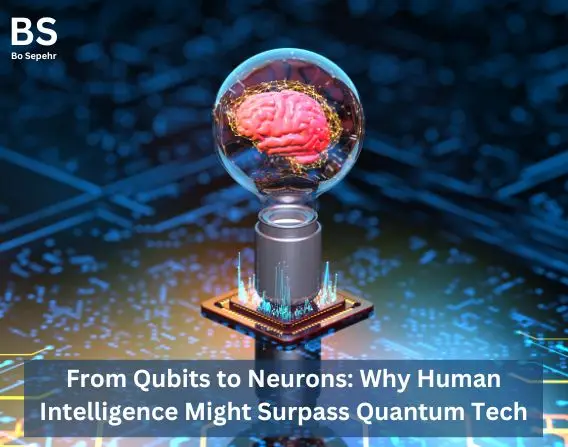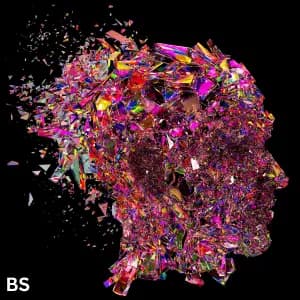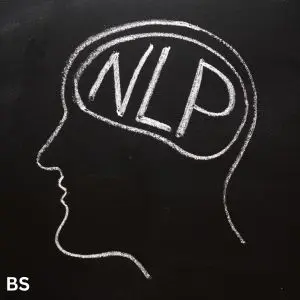Introduction
Quantum computing is the cool kid on the tech block. It’s fast, it’s powerful, and it’s supposed to solve problems that even the best supercomputers look at and say, “Nope, not today.” These machines use qubits, the overachievers of computing, which can exist in multiple states at once (superposition) and stay magically connected across distances (entanglement). It all sounds like something out of a sci-fi movie—and it is, in the best way possible. But here’s a thought: what if our own minds are already playing at a level that quantum computers are just trying to catch up to?
Think about it: our brains are incredible. They’re not just logic machines crunching numbers; they’re emotional, creative, and adaptable. We’re constantly processing a whirlwind of information—factoring in memory, intuition, perception, and even the odd gut feeling—all without breaking a sweat. Sure, quantum computers might mimic some of this with their qubits, but our neurons are playing a whole different game. We don’t just compute; we create. We empathize. We pivot on a dime when things don’t go as planned. Try asking a quantum computer to do that.
In this article, we’re diving deep into how human intelligence stacks up against quantum tech—and spoiler alert—it’s not even close. From the quantum-like abilities of our neurons to the sheer unpredictability of our creative thought processes, we might just be nature’s ultimate quantum processors. So, let’s dig in and see how the incredible power of our brains could leave even the flashiest quantum machines eating our dust.
You can also watch my first video where I dive into these concepts in an engaging way.
The Quantum-Computing Frontier
Imagine a world where your computer could simultaneously solve thousands of problems, instead of slowly chugging through them one at a time—like your laptop trying to decide if it wants to open Netflix or crash entirely. That’s quantum computing for you: a game-changer that ditches the old-school binary “yes or no” logic for something far more mind-bending.
At the heart of quantum computing are qubits, the rockstars of the quantum world. Unlike the bits we know and love (those simple 1s and 0s), qubits can be in superposition. Think of them as the ultimate multitaskers—they can be 1, 0, or both at the same time, like Schrödinger’s cat, but way cooler (and less fuzzy). Then there’s entanglement, which is basically quantum’s version of “besties forever.” When qubits are entangled, what happens to one instantly affects the other, even if they’re light-years apart. It’s like they have an unbreakable group chat where they’re always in sync, no matter the distance.
Because of these tricks, quantum computers are really, really good at solving complex problems. Whether it’s modeling how proteins fold (to fight diseases) or cracking encryption codes (hopefully just the bad guys’), quantum tech promises breakthroughs that could change everything. It’s like handing your homework over to a genius who can do it in seconds while you nap.
But here’s the catch: qubits are divas. They need ridiculously precise conditions to perform—think temperatures colder than outer space and a lab setup that looks more like a sci-fi movie set. Even a tiny disturbance can throw them off, turning their calculations into gibberish. It’s like trying to get a cat to cooperate: everything has to be just right, or it’s game over. Because of this, quantum computing is mostly stuck in fancy labs, with scientists furiously trying to figure out how to make these machines more stable, scalable, and, well, usable.
Now, let’s bring this back to us humans. While qubits are busy throwing tantrums over a slight temperature fluctuation, our brains are effortlessly solving complex problems, adapting to changes, and functioning in just about any condition—from the quiet calm of a library to the chaos of a toddler screaming for candy. We don’t need absolute-zero environments or error-correction algorithms; we just get stuff done.
So, here’s the big question: if human minds can already do what quantum computers are trying to achieve—and with far fewer hissy fits—what else might we be capable of? It’s worth thinking about. After all, you don’t need a cryogenic freezer to have a brilliant idea, right?
Human Intelligence: A Processor of Infinite Complexity?
Have you ever stopped to think about how incredible your brain really is? While quantum computers are still learning how to juggle their qubits without dropping them, your brain is out here running the ultimate multitasking show. Every second, billions of neurons are firing, rewiring, and working together to make sense of your world. Need to solve a problem? Remember where you left your keys? Dream up a wild new idea? Your brain’s got it covered—and all while keeping your heart beating and your lungs working on autopilot.
What makes this even more mind-blowing is something called neuroplasticity, the brain’s ability to reshape itself. Imagine if your computer could upgrade itself every time it hit a roadblock. That’s exactly what your brain does—it adapts, evolves, and learns, turning mistakes into stepping stones for progress. This adaptability is one of the reasons we can handle completely new problems without needing a user manual or a software patch.
Then there’s parallel processing, where our brains really show off. While quantum computers are amazing at solving highly specialized problems, your brain is busy running multiple calculations at once: managing your emotions, processing sensory inputs, making decisions, and planning your next snack. It’s like having a million tabs open in your browser—but without the annoying lag.
And here’s where it gets even more fascinating: our minds often operate in ways that seem quantum-like. Think about intuition—that gut feeling you can’t quite explain. It’s as if your brain is processing probabilities, pulling together data from countless sources to make a decision before you’re even consciously aware of it. Or take creativity, where ideas collide in seemingly random but brilliant ways, like particles in a quantum superposition. It’s messy, it’s unpredictable, and it works.
This ability to think beyond logic, to operate in multidimensional ways, might just be our superpower. While quantum computers are bound by their programming, human intelligence thrives in chaos, finding meaning where machines see noise. Could it be that our neurons are nature’s answer to qubits? If so, we’re not just keeping up with the future of technology—we are the future.
Are Our Neurons ‘Living Qubits’?
Here’s a wild thought: what if the neurons in your brain are already doing what quantum computers can barely pull off? Picture this—qubits and neurons might just be cousins in the grand scheme of problem-solving. Qubits, the stars of quantum computing, thrive on superposition and entanglement, allowing them to handle multiple possibilities and stay connected across vast distances. Neurons, though, take it to another level. They don’t just calculate; they communicate, adapt, and weave an intricate web of connections that keeps your mind running like a symphony.
Let’s talk superposition. In quantum computing, a qubit in superposition can be in multiple states at once, juggling possibilities to find the best solution. Now think about your brain when you’re making a tough decision—do you take the new job or stay put? Your mind doesn’t just weigh one option at a time; it considers the pros, cons, and every possible scenario simultaneously. It’s messy, sure, but that chaos is where your “aha!” moments are born.
And then there’s entanglement. In quantum computing, entangled qubits are so connected that when one changes, the other instantly follows suit, no matter how far apart they are. Your brain works in a similar way—neurons form networks so tightly interlinked that a single thought can trigger a cascade of activity across your entire mind. When you smell fresh-baked cookies and instantly think of your grandmother’s kitchen, that’s entanglement at work. It’s fast, fluid, and feels almost magical.
Here’s where science starts to get really interesting. Recent studies hint that quantum phenomena might actually be happening in biological systems. Some researchers suggest that processes like photosynthesis and bird navigation involve quantum mechanics, so why not our brains? It’s not too far-fetched to think that our neurons could be leveraging similar principles to process information in ways we’re only beginning to understand.
So, are our neurons just supercharged qubits in disguise? Maybe. While quantum computers need extreme environments to function, our brains handle this complexity casually, even while you’re debating whether to have another coffee. It’s a humbling thought: the technology we’re building to mimic quantum mechanics might just be catching up to what’s been inside our heads all along.
The Power of Consciousness and Subconscious Processing
If your brain were a computer, consciousness would be the sleek interface you see on the screen, while the subconscious is the invisible engine running millions of background processes. Consciousness allows you to focus on specific tasks—like reading this blog—but it’s your subconscious that quietly handles the heavy lifting, processing data in ways that feel almost magical. Ever had a brilliant idea pop into your head out of nowhere? That’s your subconscious doing its thing, connecting the dots while you’re busy thinking about something else (or binge-watching your favorite show).
What makes human consciousness so unique is its flexibility. Unlike computers, which follow rigid instructions, your mind can adapt on the fly. Consciousness lets you focus on what matters most—whether it’s solving a tricky problem, enjoying a sunset, or dodging a wayward soccer ball. But here’s the kicker: while you’re consciously deciding what’s important, your subconscious is evaluating massive amounts of information in the background, filtering, prioritizing, and occasionally serving up a solution you didn’t even realize you were working on.
Now let’s talk about how the subconscious might be our brain’s secret “quantum” powerhouse. Quantum computers are known for their ability to process vast possibilities simultaneously, and the subconscious seems to do something eerily similar. It sifts through data from your senses, memories, and emotions, weighing probabilities and generating insights—all without you lifting a finger. Think about when you meet someone new and instantly “sense” whether you trust them. That’s not random; it’s your subconscious analyzing countless subtle cues faster than you could ever consciously process them.
What’s truly fascinating is how subconscious processing operates outside the constraints of time and linear logic. It can connect ideas and patterns in ways that feel intuitive rather than calculated. It’s the source of your hunches, gut feelings, and creative bursts. While your conscious mind might be stuck trying to solve a problem one step at a time, your subconscious is taking the scenic route, exploring possibilities and often arriving at answers that feel like pure genius.
In many ways, the subconscious is like having your own quantum assistant—a tireless background worker that evaluates infinite possibilities, hands you solutions, and keeps you moving forward. And the best part? It’s always on, quietly shaping your thoughts, decisions, and even dreams, all while you’re busy living your life. Maybe we don’t need to build quantum computers after all—turns out, we’ve had one running inside us all along.
Why Quantum Computers May Never Replicate Human Creativity and Intuition
Here’s the thing about humans: we’re gloriously unpredictable. Creativity, empathy, and intuition—the stuff that makes us uniquely “us”—aren’t just processes you can code into a machine or calculate with probabilities. Sure, quantum computers can crunch numbers faster than you can say “superposition,” but can they write a novel that moves you to tears? Can they sense someone’s unspoken sadness and offer comfort? Can they stare at a blank canvas and see a masterpiece waiting to happen? Not so much.
Let’s start with creativity. Human creativity isn’t about following rules; it’s about breaking them, bending them, or throwing them out entirely to make something new. It’s a jazz improvisation, a late-night brainstorming session, or a wild “what if?” question that leads to innovation. Machines, on the other hand, thrive on patterns and structure. Even with quantum magic, they can’t feel the spark that drives our best ideas. They might simulate creativity by remixing existing data, but true originality? That’s still our domain.
Then there’s empathy. While quantum computers can analyze complex data, they don’t “get” feelings. They might recognize patterns in human behavior, but understanding why someone’s voice trembles or why a small gesture means the world? That’s a leap they can’t make. Empathy requires connection, an understanding of nuance, and the ability to read between the lines—something no algorithm can master, quantum or otherwise.
And intuition? That’s where humans really shine. Intuition is that gut feeling you can’t quite explain but just know is right. It’s built on a lifetime of experiences, subconscious data processing, and an almost mystical ability to see patterns where others see chaos. A quantum computer might calculate probabilities with lightning speed, but intuition is about more than numbers. It’s about trust, instinct, and the courage to follow a hunch, even when logic says otherwise.
So, could a quantum computer ever truly replicate these deeply human traits? Probably not. Machines are bound by their programming and logic, even in a quantum state. Creativity, empathy, and intuition live in the messy, unquantifiable realm of human experience. They’re not problems to be solved—they’re expressions of what it means to be alive.
While quantum computers may revolutionize how we solve certain problems, they’ll never replace the messy brilliance of human creativity or the quiet wisdom of a gut feeling. And that’s a good thing—because no matter how advanced technology gets, some things will always remain uniquely, beautifully human.
Biological Computing: How Our Bodies Process Data Beyond the Brain
When we talk about processing information, we usually think of the brain—the superstar of the human body. But what if I told you that your entire body is one giant, data-crunching biological computer? Yep, every cell, every sensory input, and even your microbiome (that bustling community of bacteria in your gut) is part of a sophisticated network constantly processing and exchanging information. Your body isn’t just along for the ride—it’s a key player in how you experience and adapt to the world.
Let’s start at the cellular level. Each of your trillions of cells is like a tiny processing unit, taking in data, making decisions, and adapting in real-time. For example, your immune cells can recognize a threat, communicate with other cells, and launch a coordinated defense—all without consulting your brain. It’s like having a decentralized network of problem-solvers working behind the scenes 24/7. Honestly, if your body were a tech company, it would be running circles around Silicon Valley.
And then there’s sensory input. Your skin, eyes, ears, and other sensory organs are constantly feeding your brain an endless stream of data—temperature changes, light levels, sound vibrations, you name it. But here’s the kicker: a lot of this data gets processed locally, without ever bothering the brain. For instance, when you pull your hand away from something hot, that decision happens at the spinal cord level, faster than your brain can say, “Ouch!”
Now, let’s talk about the microbiome. That’s the trillions of bacteria, fungi, and other microorganisms living mostly in your gut, and they’re not just freeloading. These microscopic teammates are in constant communication with your brain through something called the gut-brain axis. They influence everything from digestion to mood, even helping regulate your immune system. Some researchers even call the microbiome a “second brain,” which is both amazing and slightly unsettling when you think about it.
Put it all together, and your body becomes a decentralized computing powerhouse, processing data in ways that no machine can match. Unlike a traditional computer—or even a quantum one—your biological system is fluid, adaptable, and endlessly interconnected. It doesn’t just process information; it learns, evolves, and thrives in dynamic environments.
So, next time you think about intelligence, remember: it’s not just your brain doing the work. Your entire body is a biological computing marvel, running a network so advanced, even quantum computers would be jealous. Pretty impressive for something powered by lunch, isn’t it?
Implications for AI and Quantum Tech: Should We Look to Human Biology for Answers?
Let’s face it: nature’s been running the original R&D department for billions of years, and it’s produced a pretty spectacular prototype—us. If we start thinking of the human body and mind as the ultimate “quantum” processor, it opens up some tantalizing possibilities for the future of AI and quantum technology. Instead of reinventing the wheel, maybe the smartest move is to look inward, studying what already works. After all, why build clunky imitations when the blueprint for brilliance is right in front of us?
Take AI, for example. Right now, even the most advanced AI systems are basically very fast pattern-matchers, following pre-set algorithms to mimic intelligence. But human cognition? That’s a whole other level. Our brains learn flexibly, adapt creatively, and operate with a kind of intuition that no machine can replicate. Imagine if we could translate those traits into artificial systems—not just teaching them to think faster, but teaching them to think smarter, more intuitively, and even emotionally. Mimicking how our neurons process and adapt could be the key to unlocking AI that truly understands and interacts with the world.
Then there’s quantum computing. It’s already trying to tackle problems by exploring possibilities simultaneously, much like our subconscious processes information. But what if quantum engineers studied how the human brain does this effortlessly? By learning how neurons stay coherent and connected without freezing temperatures or error-correction codes, we might finally solve some of the biggest challenges in quantum tech. Our bodies handle complexity with elegance—why shouldn’t our machines?
And let’s not stop at the brain. The decentralized intelligence of our immune system, the real-time data exchange between our microbiome and brain, even the way our cells self-repair and adapt—these are all biological systems that could inspire breakthroughs in both AI and quantum design. Imagine a machine that repairs itself like a cell or an AI that processes emotional and sensory data like the gut-brain axis. Suddenly, the line between biology and technology starts to blur.
Looking to human biology for answers doesn’t just mean copying nature; it means collaborating with it. By bridging the gap between our understanding of biological intelligence and the capabilities of machines, we might not just build smarter technology—we might create systems that truly reflect the complexity, adaptability, and creativity of life itself.
In the end, the greatest innovations in AI and quantum computing might not come from more circuits or qubits, but from studying what’s already working inside us. After all, if nature figured it out, why shouldn’t we?
Conclusion: Humans as Quantum Machines?
After all this, one thing is clear: humans are more than just complex biological organisms—we’re walking, thinking, feeling marvels that might already embody principles far beyond the grasp of modern technology. Our brains can weigh infinite possibilities like quantum computers, process vast data streams like supercomputers, and adapt to the unknown with the kind of intuition and creativity no algorithm can mimic. We’re not just surviving in this chaotic world; we’re thriving in ways that machines, even quantum ones, can only dream of replicating.
As we marvel at quantum computing’s ability to tackle problems at lightning speed or AI’s growing capacity to learn, it’s worth remembering that these technologies are, at best, distant echoes of what the human mind and body have been doing all along. From neurons firing in intricate networks to our subconscious working quietly in the background, our intelligence isn’t just functional—it’s deeply personal, messy, and wonderfully unpredictable. And that’s what makes it extraordinary.
But here’s the twist: even with all our knowledge about neurons, biology, and the quantum mechanics of life, we’re still scratching the surface of what it means to be human. What lies beneath our intuition, our creativity, and our ability to connect with others? These mysteries remain unsolved, and perhaps that’s the most exciting part. While machines can be programmed to improve, we are built to evolve, endlessly surprising ourselves with new ways to think, feel, and innovate.
So, are humans nature’s quantum machines? Maybe. Or maybe we’re something even more profound—living proof that the universe’s greatest mysteries aren’t found in the labs or the algorithms but within us. As technology races forward, let’s not forget to look inward. After all, the answers we seek might already be written in the code of what makes us human. And that is a frontier worth exploring.













Responses (0 )